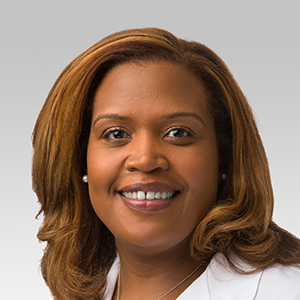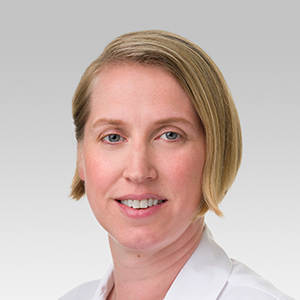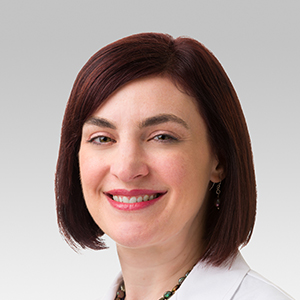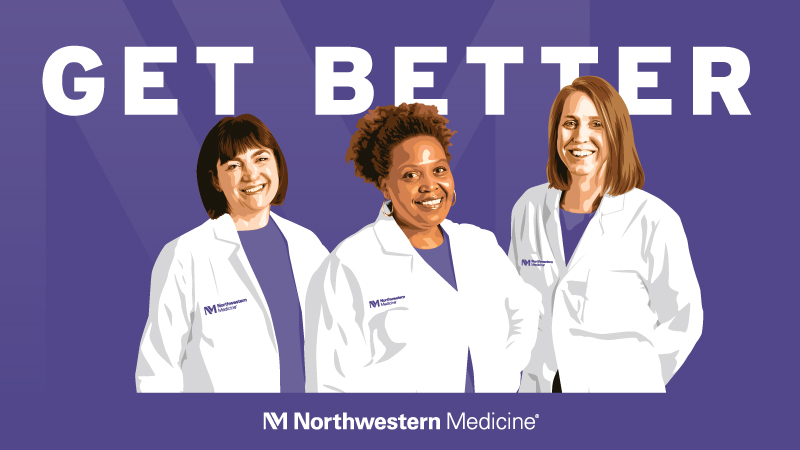SEASON 1 EPISODE 5
Get Science-Based Skin Care Tips [Podcast]
Skin Care Tips from a Northwestern Medicine Dermatologist
Published March 2022
About this Episode
When it comes to skin care, it's hard to know what will help and what is just hype. A Northwestern Medicine dermatologist shares skin care tips for everything from acne to dry skin, with special considerations for people of color.
Featured Guest Experts
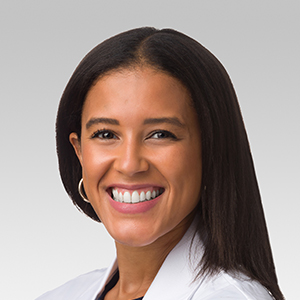
About the Get Better Podcast
Living a healthier life is a journey with no final destination: You can always get better.
Susan Russell, MD, Khalilah Gates, MD, and Michelle Prickett, MD, are three pulmonologists at Northwestern Medicine who help people get better from critical illnesses. They are also lifelong friends and lifelong learners who want to get better from head to toe.
These three physicians will learn alongside you as they interview other Northwestern Medicine experts about health and medicine topics meant to help you achieve better health.
Listen
Disclaimer: This podcast does not substitute for medical advice from a clinician.
Transcript
Russell [00:00:02] Let's get stronger.
Gates [00:00:04] Healthier.
Prickett [00:00:04] Calmer.
Russell [00:00:04] Smarter.
Gates [00:00:05] Better.
Russell [00:00:06] Living a healthier life is a journey, not a destination.
Gates [00:00:10] You can always get better.
Prickett [00:00:11] Let's get better together.
Russell [00:00:18] When faced with so many skin care products and advice, it's hard to know where to start and what works for one person may not work for another. Hi, I'm Dr. Susan Russell. I'm joined today by my co-host, Dr. Michelle Prickett, and Northwestern Medicine Dermatologist Dr. Julia Mhlaba. Dr. Mhlaba is the assistant director of the Northwestern Medicine Center for Ethnic Skin and Hair. Today, we're going to be talking about building a skin care routine, protecting your skin from things like sun and dryness, and different skin care concerns for people of color. Welcome, Dr. Mhlaba.
Mhlaba [00:00:51] Thank you so much. I'm so excited to be here.
Russell [00:00:54] All I've been thinking about is covering my entire face with a mask and goggles and multiple layers for two years. And now I'm thinking about my skin. What is a skin care routine?
Mhlaba [00:01:08] Yes, this is such a common concern for my patients. So I think the most important thing to think about when building a skin care routine is what your skin goals are. I think the most basic three important points for almost everyone in terms of a skin care routine would be just a gentle cleanser one or two times a day. Sunscreen and sun protection we'll talk about in detail, I'm sure, today. And then a good moisturizer for your skin. And really, for most people, this is really all you need. Simplicity is good. Do you two or have you two started with at least those three things?
Prickett [00:01:40] We try our best. The sunscreen for me, I have a skin tone known as translucent, so I am very much a fan of the sunscreen.
Mhlaba [00:01:49] Well, that's great. Then that's half the battle.
Prickett [00:01:51] And sometimes it gets to be a little bit too heavy. I'll tell you, sometimes, I actually go on the side of too much.
Russell [00:01:56] Yeah, I vary mine based on time of year. Like, I use a heavier moisturizer in the wintertime. And then something a little bit lighter in the summer. And then I use an SPF 45 every day that's tinted.
Mhlaba [00:02:08] Varying the type of product, the thickness between seasons is super important, and then tinted sunscreens are great. I'll talk a little bit more about that later, but that's a really good way, especially for people who have pigmented skin, to help that sunscreen blend in a little bit more. So, it sounds like you two are really off to a good start with your skin care routine. A lot of my patients tell me that they really want to focus on improving their overall skin tone, getting a more dewy, glow-y look. So my favorite two products, I would say for that to add on to those first three would be vitamin C serum or another type of vitamin C product and hyaluronic acid. So vitamin C is an amazing antioxidant, has many benefits for the skin. It hydrates the skin and reduces pigmentation and reduces redness. Also promotes collagen production. This is a really good product for adding that dewy, glow-y look to the skin. And it's also helpful for our patients who are developing that post inflammatory hyperpigmentation that often comes after acne bumps or things like that. And then hyaluronic acid, I mentioned, is another favorite product. It's really good for the winter because it helps lock in moisture. This is very important for dry skin, and one of the things to note about hyaluronic acid is, we really want to apply it onto wet skin or after dabbing some water onto your fingers. Have you tried either of those products?
Russell [00:03:20] I used a vitamin C serum at one point in the past. Full disclosure: I have a friend who's a dermatologist. So...
Mhlaba [00:03:25] Okay, so you've learned some tricks already. I love it. But the main thing to look for is that active ingredient. I think that helps clarify things for most people. And then the next common thing that I hear when people want to build a skin care routine is that they want to, you know, age more gracefully; fine lines, prevent aging. And so the number one way to do that, besides protecting your skin from the sun, which is essential, is topical retinoids. And this is a type of product that I would say almost every dermatologist swears by. It helps prevent aging, helps smooth out fine lines. It also can help with pigmentation. Retinoids come in all shapes and sizes. You can get over-the-counter retinol products to prescription strength retinoids, and these are really vitamin A derivatives that help promote collagen production.
Russell [00:04:12] And going back to the vitamin C, is it topical vitamin C or ...
Mhlaba [00:04:17] Yes, topical vitamin C, exactly.
Russell [00:04:18] Yeah, not, not like taking a herbal supplement.
Mhlaba [00:04:22] Yeah, exactly. So, apply it directly to the skin will get the most benefit.
Prickett [00:04:26] And how often would you want somebody to do that? Like, is this an everyday thing? This is all day, multiple times. What's the norm?
Mhlaba [00:04:33] Yeah. So, most of the time we break it up into kind of a morning routine and an evening routine. Most products should be applied once a day, sometimes twice a day is reasonable. But, in the morning I generally recommend a gentle cleanser. This would be a good time to use a vitamin C serum, for example, and then a sunscreen or moisturizer or a combination of the two together. And then in the evening, again, a gentle cleanser. If you are using a topical retinoid, this is the best time to apply that and then a moisturizer on top.
Russell [00:05:01] There's a lot of things you can find out there on social media about all sorts of different things for the skin. What are common skin care myths that you hear about frequently?
Mhlaba [00:05:10] I think the most important thing, in terms of choosing a product, is understanding that there are different price points for all different people. You do not need to purchase an $80 cream to have any benefit. Like I said, you really want to look for that active ingredient. All of these products differ in their packaging, their scents, their consistency. So, you know, some products may be a little bit more expensive for that reason, but the main goal is just finding an effective regimen, so these products can really be found in your local drugstore. One of the common myths I hear is that you only need to wear sunscreen in the summertime, and this is, you know, even in Chicago... One of the best things about living here is that even if it's zero degrees outside, we often do get a lot of sun. This is one of the things I love about it, but it also means that we need to wear sunscreen pretty much every day that you're going to be outside. Even if it's just walking your dog, commuting to work, you are being exposed to the sun. So, for that reason, I do recommend wearing at least a 30 SPF on your face every single day.
Russell [00:06:06] And does that apply to all skin tones? Because the two of us are pasty white, so obviously we're going to SPF it up.
Prickett [00:06:13] Translucent.
Mhlaba [00:06:14] Yes, it's definitely important for people who do have fair skin, but it's also important for all skin types. We do know that skin cancer is less common in people who have darker skin types. But there are other benefits to sunscreen. Preventing hyperpigmentation. So we do recommend it for pretty much all patients.
Russell [00:06:33] I feel like that and moisturizer should just be, like, across the board.
Mhlaba [00:06:36] Yes, exactly. And a lot of times you can find moisturizers that have an SPF of 30, at least, in them, which can be helpful just to save time.
Russell [00:06:43] And if you're using a daily sunscreen, do you need to put it on more than once?
Mhlaba [00:06:47] That is a really good question. In general, we do recommend applying sunscreen every two hours, but I don't think this is really realistic for people who are in an office all day. So, I think most people, just putting it on in the morning is reasonable. For a lot of women, especially, who wear makeup, can't be reapplying sunscreen on their face every single, every few hours. They do have powder brushes that you can apply that have sun protection in them. So that's an option for people who are going to be outside for extended periods of time. For most people, just the morning application is enough.
Prickett [00:07:17] How do you approach the drugstore aisle if you're going to, say, looking for a sunscreen?
Mhlaba [00:07:21] There are two different categories of sunscreens. There are chemical sunscreens and physical sunscreens. The chemical ones, you know, they often end in "o" "n" "e" so, like, avobenzone, that's an example of a chemical sunscreen. The physical blockers, or the physical sunscreens are mineral-based, and they are generally titanium dioxide or zinc oxide, you'll see listed. A lot of sunscreens have both chemical and physical blockers, but generally most dermatologists do recommend the physical sunscreens. So, the titanium dioxide, the zinc oxide, they are a little bit less irritating, especially for people with sensitive skin, and they're a little more effective. You know, this is, like, the typical lifeguard that you've seen with the white block, white cream on their nose. So now they're a lot more sheer. And we were talking a little earlier about tinted sunscreens, so they will mix the physical blockers with a tint that makes it appear a little bit less that white cast. I generally try to find a physical blocker, so I'm looking for that zinc oxide, titanium dioxide, and then I'm looking at the SPF. Generally, for my face on a daily basis, 30 is reasonable, but say I'm going to a beach vacation, I'm going to be outside more often. I recommend increasing that SPF. For most people, 50 is doable, but 90, 100 SPF when you're going to a beach vacation can help prevent sunburns. So, usually the higher SPF is a little more expensive. But in some cases, it may be worthwhile spending a few extra dollars to get that. And then the other things to look at it, just making sure that there's broad spectrum coverage. So, UVA and UVB. You really just don't want to have a lot of extra additives. There's no need to have any fancy scents in your sunscreen. You just kind of want something gentle on the skin that will provide that sun protection.
Prickett [00:08:59] Can we talk a little bit about hair? Because the one thing that I am hearing from friends, family, patients is hair loss, especially with all the stress and all the issues in the last couple of years. So, do you mind just filling us in about what your thoughts are on when people start to feel thinning hair or losing hair and how our approach should be for that?
Mhlaba [00:09:16] That is a very common concern that I'm hearing from my patients, especially like you said after COVID infection. There's many different types of hair loss. The most important thing to differentiate is scarring types of hair loss from non-scarring types of hair loss. And if you are concerned about scarring hair loss, definitely seeing a dermatologist as soon as possible is the best way to go. But most patients are having the non-scarring type, which is probably more of what you're mentioning. So, even within that category, there are lots of different reasons why you could be having hair loss. For most patients who are describing shedding, you know that they are noticing a lot more hair at the bottom of the shower drain, and then they feel that their hair looks thinner...
Prickett [00:09:55] Falling out, it's coming in my comb.
Mhlaba [00:09:57] Exactly. So that is most often associated with a condition called telogen effluvium. And so, we call it TE for short.
Prickett [00:10:05] That's a really big word.
Mhlaba [00:10:05] Yeah, it's a big word, TE is a little easier to say. And so, we generally think of this occurring several months after some stressor. The stressor could be COVID infection. It could be the stress of having to deal with the COVID pandemic, so it does not have to be a true medical event. It could be a hospitalization, it could be a surgery, it could be some type of illness. And so, people will several months later develop this shedding. That shedding can last months to even a year, which is a very frustrating issue for people to deal with. But it does usually resolve. A lot of times, we're counseling patients on just that fact that it will get better, while making sure that there's not anything going on that's triggering it. So, some common things that can be associated with that type of hair loss would be thyroid disease or a low iron level. So, these are things that we will often be assessing our patients for when we see them in clinic. If you are concerned about this type of hair loss, it's definitely not something you need to suffer with. We treat this all the time in dermatology, so it would be a good reason to see a dermatologist.
Russell [00:11:07] I hear a lot of people talk about biotin and hair loss.
Mhlaba [00:11:09] In lots of studies we have looked at, there has really been no evidence that biotin helps hair growth. So, most dermatologists, I would say, do not use this as their mainstay of treatment. It's often found in hair vitamins that people may take. I don't necessarily think it's a bad thing. I don't think it will hurt hair, but it does interfere with thyroid testing, which can be an issue for some patients. So, it's generally not one of the first few things that I would recommend. I would say probably the most common place to start for people is just an over-the-counter, topical minoxidil solution or foam. You can purchase this at your grocery store or your pharmacy and just applying that once a day. It does take some time, but that's a really good place to start, especially if you're waiting for a dermatology appointment, because it is safe to use and it is effective at kind of thickening the hair.
Russell [00:11:59] So let's switch gears a little bit. Let's talk about acne. When should you be concerned about acne? And I have thought about this in kind of two types: either adolescence or an older age or not so older age.
Prickett [00:12:13] Mask wearing for two years?
Mhlaba [00:12:15] Yes, definitely a big trigger.
Russell [00:12:18] So, what are your thoughts about it?
Mhlaba [00:12:20] Yeah. So, you know, acne definitely could affect people of all different ages, all genders. I think it's helpful to think about it in different categories because that's sort of how we decide how to treat it. And a lot of acne treatment, you can even start with over-the-counter products, but of course, seeing a dermatologist is helpful if that's not really cutting it. So, I would say the most mild type of acne, very common in teenagers, is what we call comedonal acne. So, that's when you think of whiteheads, blackheads, often on the forehead and temples. This does kind of occur right around the time of puberty in teenagers, but I do have patients even in their 30s, 40s, 50s who have this type of acne. The main product we use to treat it is a topical retinoid. So, the same product that I just mentioned helps with prevention of aging is one of our most effective acne treatments. And you can even start with over-the-counter topical retinols or retinoids, which are a little bit stronger. One example is adapalene 0.1% gel. You can pick that up at your local grocery store or pharmacy, and that is a really helpful way to just start the process of treating the acne, especially when it's just that comedonal type. I would say the next common type of acne is, is more of the inflammatory acne. So, when we think about pimples, this is what we're thinking about. It can affect teenagers, but it also does affect adults. I see a lot of patients in their 20s and 30s with this type of acne. And the thing about these pimples is they can lead to scarring. So, this is why we really think it's important to treat acne aggressively, especially in teenage years, because it can start pretty early and scarring can be permanent. Seeing a board-certified dermatologist, probably the best route to go if you are developing scarring, but even starting with a retinoid like I mentioned or adding in another topical product like a benzoyl peroxide wash or a salicylic acid wash, that can be really helpful. These are often branded as acne cleansers, and you can find them at your local pharmacy. When we do see patients in clinic for this type of acne, we will often add either a topical or oral antibiotics, as well as other oral medications, if needed. And then I will say one of the most common types of acne that I see these days, especially in my female patients, is hormonal acne. So, this is a type of acne that typically we think of as those deep cystic bumps. They often pop up on the cheeks, the jawline, the chin, sometimes the neck. For some women, it worsens around their menstrual cycle. A lot of women these days have IUDs, and it may be less clear when they have their true cycle. And so, it's not always clear if it's around the menstrual cycle. But, this hormonal acne can be really frustrating for women, especially if they've never even had acne growing up. And all of a sudden, in their 30s, when they thought that wasn't a thing, they just developed this acne. And so, definitely the topicals, as we mentioned, I mentioned, previously, can help. But often this does require systemic treatment, so birth control pills can be helpful as well as other hormonal medications. One example is a medication called spironolactone, which works beautifully for many patients. So, if this is something that is concerning to people, seeing their OB/GYN, their dermatologist, their primary care provider would be really helpful.
Russell [00:15:23] I know a lot of women too get flares and acne with pregnancy.
Mhlaba [00:15:27] Yes.
Russell [00:15:28] Are there any special things that people should think about if they're pregnant and they start developing hormonal acne with any certain phase of pregnancy?
Mhlaba [00:15:36] Yes, that is such a good question. I think this is probably one of the most frustrating things that I see patients come in with because acne worsens in pregnancy in some patients. But it's also difficult to treat to acne in pregnancy because many of the medications we commonly use are not safe in pregnancy. So, for example, topical retinoids are not safe in pregnancy. One of my favorite treatments for people who are pregnant is azelaic acid. So that comes in both prescription and over-the-counter formulations, and it's completely safe to use. That's a good place to start for women who might be having a flare around pregnancy. Unfortunately, things like spironolactone and birth control pills obviously wouldn't be viable options in that patient population. So, it can be a little bit of a challenge. But we do have some treatment options that can be helpful.
Russell [00:16:22] I know Michelle has adolescent boys and I know kind of enforcing a skinc are routine in adolescents may be challenging, depending on who you're talking about.
Prickett [00:16:32] Sometimes it's a challenge to get them to take a shower on a routine basis, so we have to pick our battles. So, if I have to pick my battle, what battle do I pick?
Mhlaba [00:16:41] You know, I think the best thing actually in that case would be to put a benzoyl peroxide cleanser in the shower. That way, they can do it while they're showering and just have them, you know, put it on their face. A lot of teenagers will have body acne, so chest and back and shoulders, they can use it as a body wash, too. I always recommend my patients do some part of their skin care routine in the shower because they're there and you can wash it off completely. One of the things about benzoyl peroxide that I'll mention is that it can bleach things, so it's really important to completely rinse it off. And that's actually one of the reasons why the shower is a great way, a great place to use it. So, yeah, that's probably the biggest bang for your buck. The next thing I'd recommend is a topical retinoid like the adapalene 0.1% gel, but I have a feeling that maybe a little more challenging to accomplish. So, a good face wash is an easy place to start.
Prickett [00:17:27] Good to know. It's good to know a starting point.
Mhlaba [00:17:29] Yeah, exactly.
Russell [00:17:30] What are some good ways to treat dry skin and our Chi-beria winters?
Mhlaba [00:17:35] I think this is probably the biggest question I get from my patients, and almost all of them have dry skin because, like you said, we are living in Chicago. Everybody has their heat turned up very high. Their homes are dry. So, this is a time of year where people's dry skin is often exacerbated. You know, a lot of patients who have eczema or other inflammatory skin conditions can also have worsening of their skin conditions during this time. But there are few ways to combat this. So, one of the things I often hear from my patients is that they love long hot showers, and I am also guilty of this, but it really does dry out your skin. So, we try to recommend shorter five to 10 minutes showers with warm water, not scalding hot water. And then after the shower, you really want to be gentle when you're drying your skin. So, patting it dry instead of rubbing it vigorously and then applying a really good, thick cream-based moisturizer. So, we often will say that things that come in a jar or a tub are often better for the winter. And, you know, once it gets to summertime, you can always go back to your lighter lotion. But most people do need a thicker moisturizer in the wintertime, and some people even need an ointment like petroleum jelly to apply to the skin at night. These can be greasy and can be a little uncomfortable, but they are helpful for locking in moisturizer. And then one other tip that a lot of my patients benefit from is getting a humidifier. You can keep this in your bedroom or your office that can also help prevent dryness in the environment.
Russell [00:19:00] For us in the pulmonary world, we would just say, make sure you wash your humidifier and that you put clean water in it.
Prickett [00:19:08] Clean distilled water.
Russell [00:19:10] We've talked a lot about general skin concerns, but you do work with the Northwestern Medicine Center for Ethnic Skin and Hair. Are there any special skin concerns for people of color or different pigmented skin tones that we should be really highlighting?
Mhlaba [00:19:28] Yeah. So, there's definitely skin concerns that are specific to patients of color. I would say the most common general category is that a lot of patients who have pigment in their skin will hyperpigment more easily. So, hyperpigmentation just means increased pigment. And often this is post-inflammatory, so it's occurring after inflammation. For example, acne, that's a very common cause of what we call post-inflammatory hyperpigmentation. For many of my patients, the hyperpigmentation or those dark spots is actually more bothersome than the acne itself. So, in terms of treating that pigmentation, we've actually talked about a lot of good options that people can try, topical retinoids. Another one of their added benefits is that they can help with pigmentation. Vitamin C serums, or vitamin C-containing products are really helpful. All glycolic acid is another one that can help with pigmentation, and azelaic acid, I mentioned, that's the one that's safe in pregnancy. It's also great for pigmentation. And then sunscreen, you know, is really important because sun can worsen pigmentation. So, we do recommend daily use of sunscreen and other methods of sun protection to help with that. Another condition we see a lot in our patients of color is called melasma. This is a very common condition. It can happen in all skin types, and a lot of women will develop this during pregnancy. You might recognize this. People will have tan spots on their cheeks, often on their forehead. And pretty much all those products that I mentioned for pigmentation can be helpful for this condition. But we often do need to use prescription strength lightening products and even advanced treatments, like peels and lasers for this condition. So, seeing a dermatologist can be really helpful for that.
Russell [00:21:08] Well, I don't know about you, Michelle, but I've learned so much today about the skin. Thanks so much for being with me here today, Dr. Mhlaba.
Mhlaba [00:21:16] Thank you for having me. This was great to talk to you both.
Russell [00:21:20] Thanks for listening to Get Better.
Gates [00:21:22] We hope you leave this podcast better than when you started.
Prickett [00:21:25] For more information visit nm.org/healthbeat.




